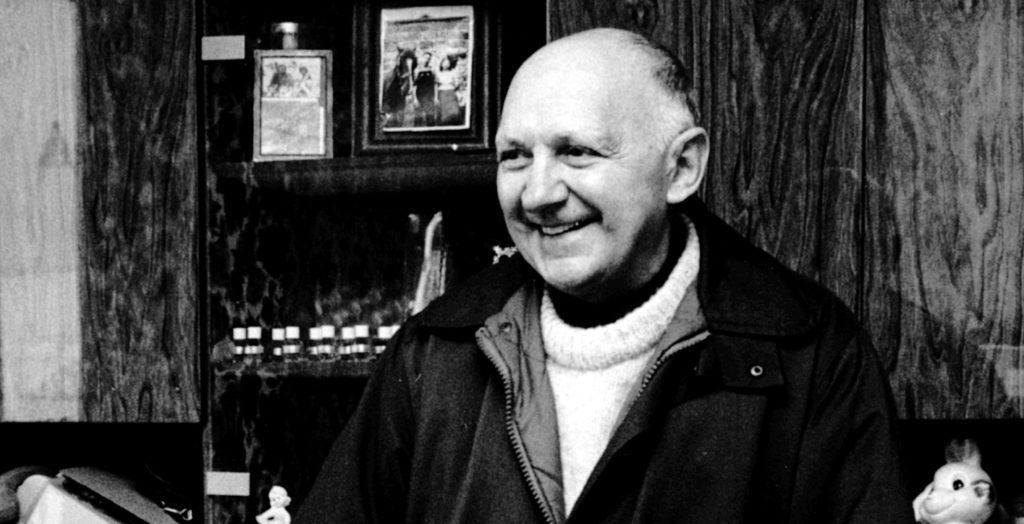The 17th October this year will mark the 30th anniversary of the call to action made by Father Joseph Wresinski that inspired World Day for Overcoming Extreme Poverty. It is the 25th anniversary since a Declaration by the General Assembly encouraging UN countries to observe and promote this day. The World Bank’s index for ‘extreme poverty’ is US$1.90 a day.
Wresinki’s call to action was unveiled in the presence of 100,000 people on a commemorative stone at the Trocadero Human Rights Plaza in Paris in 1987. At this time, nearly 40% of the world’s population lived in extreme poverty. He writes after:
‘Defenders of human and civil rights from every continent gathered on this plaza. They paid homage to the victims of hunger, ignorance and violence. They affirmed their conviction that human misery is not inevitable. They pledged their solidarity with all people who, throughout the world, strive to eradicate extreme poverty. Wherever men and women are condemned to live in extreme poverty, human rights are violated. To come together to ensure that these rights be respected is our solemn duty.’
My first thought at reading the UN declaration made five years later, in 1992, by the General Assembly, was that it was a little noncommittal, mainly giving its blessing for what many people and organisations were probably already doing. Extreme poverty figures had dropped to around 35% of the world’s population, meaning change was already gathering momentum. However, the declaration was a huge deal: it heard the voice of the people and said, ‘We’re in this together’.
13 years later, and the abovementioned figures had declined substantially, with 21% of the world’s population still living in extreme poverty. At this time, I remember attending a Make Poverty History march in 2005. I was 15 and my parents on this rare occasion gave their blessing for me to do an all-nighter with friends for a vigil in Trafalgar Square in solidarity for the movement. It felt good. I liked to think that as a nation we were saying with one voice: ‘Drop the debt’. We really believed could make povrty history by staying up all night, the hope that we had was part of a ripple.
We were definitely part of something much bigger than ourselves, a movement that had rea impact. I remember the feeling of elation, after our march through London, when the G7 agreed to write off the crushing debts that would save some of the world’s poorest countries – including Rwanda, Uganda, Ethiopia and Mozambique – 30 billion GBP. These were countries that were spending more paying off their debts than they were on education and healthcare. Perhaps this was part of a continued ripple helped by Father Wresinski’s words and the declaration and the actions of some other inspiring characters through history.
The fact that we observe such a day now is a triumph. Things are changing. Science and technology are racing ahead. Looking at our efforts across a much larger timeline, in 1820, according to the World Bank, 80% of the world lived in extreme poverty. Nearly 100 years later, in 1910, that figure stood at 65%. By 2015, it was at just over 9%. These are extraordinary figures, given the fact that the world’s population has increased exponentially the last 100 years.
However, the world’s population continues to grow. The World Bank projects a global population of 11.9 billion people in 2100, with 80% of people living in Asia and Africa. Nigeria, Uganda and Democratic Republic of the Congo constitute three of nine countries in which half of the growth is projected to occur. Meanwhile, climate, conflict and normal levels of poverty continue to affect living standards, causing more and more to migrate – internally and internationally. This is a global issue, one that requires global solutions, and will involve the coming together of all kinds of bodies, be they UN-led, continental-based organisations like the African Union, national and regional governments, and NGOs of all kinds. Extreme poverty is in decline, but we need to prepare for the future.
For our part, as you know, JbD has supported over the years a range of charities aimed at reducing poverty through, in the main, education, and our sister charity, Wild Philanthropy, is committed to helping Africa’s wildernesses pay for themselves, and always in partnership the local community stakeholders, whose eco-businesses will help to lift people out of poverty, and at the same time protect the wildernesses they rely on. If you think you can help, please do have a look at Wild Philanthropy’s website, and do get in touch.
Lead image: Joseph Wresinski by ATD QUART MONDE, licensed under CC BY 3.0

